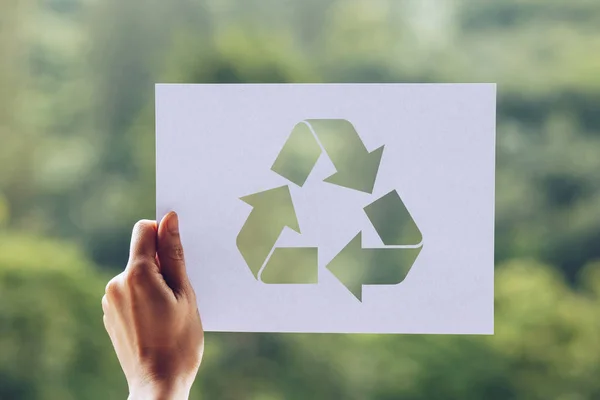
As global demand for paper products continues to grow, so does the strain on the world’s forests. The production of paper is a leading cause of deforestation, which in turn contributes to biodiversity loss, climate change, and the depletion of vital ecosystems. However, paper recycling offers a powerful solution to this challenge. By recycling paper, we can significantly reduce the demand for raw materials, protect forests, and promote sustainable forest management. This article explores the impact of paper recycling on deforestation and highlights its role in conserving forests for future generations.
The Relationship Between Paper Production and Deforestation

1. The Demand for Wood Pulp
Paper production relies heavily on wood pulp, which is derived from trees. The pulp and paper industry is one of the largest consumers of wood, accounting for approximately 35% of the total global wood harvest. This demand for wood has led to extensive deforestation, particularly in tropical and boreal forests, where some of the most biodiverse ecosystems on the planet are found.
Deforestation for paper production not only destroys habitats but also disrupts the carbon cycle. Trees play a critical role in absorbing carbon dioxide from the atmosphere, and when they are cut down, the stored carbon is released back into the air, contributing to climate change. Moreover, the loss of forests reduces their ability to act as carbon sinks, further exacerbating global warming.
2. The Environmental Impact of Deforestation
The environmental impact of deforestation extends beyond climate change. Forests are home to a vast array of plant and animal species, many of which are endangered. When forests are cleared for paper production, these species lose their habitats and are pushed closer to extinction. In addition, deforestation disrupts the water cycle, leading to soil erosion, reduced water quality, and increased flooding.
The social impact of deforestation is also significant. Indigenous communities and local populations that depend on forests for their livelihoods are often displaced or deprived of essential resources. The loss of forests can lead to conflicts over land and resources, further destabilizing regions already facing environmental and social challenges.
The Role of Paper Recycling in Forest Conservation
1. Reducing the Demand for Virgin Wood
Paper recycling plays a crucial role in reducing the demand for virgin wood, which in turn helps to conserve forests. When paper is recycled, the fibers can be reused multiple times to create new paper products. This process reduces the need for fresh wood pulp and allows trees to remain standing, preserving their ecological functions and protecting biodiversity.
Recycling one ton of paper can save approximately 17 trees, 7,000 gallons of water, and 4,000 kilowatt-hours of electricity. These savings highlight the significant environmental benefits of recycling and underscore its importance in reducing the strain on forests.
2. Energy and Water Conservation
The paper recycling process is also more energy and water-efficient than producing paper from virgin wood. Recycling paper uses about 60% less energy and 80% less water than producing new paper from raw materials. This reduction in resource consumption not only helps to protect forests but also contributes to the overall sustainability of the paper industry.
By conserving energy and water, paper recycling reduces greenhouse gas emissions and minimizes the environmental footprint of paper production. These benefits make recycling a key component of a circular economy, where resources are reused, waste is minimized, and environmental impact is reduced.
3. Promoting Sustainable Forest Management
Paper recycling supports sustainable forest management by decreasing the pressure to harvest trees. When the demand for virgin wood decreases, there is less incentive for logging companies to clear-cut forests. This shift encourages the adoption of sustainable forestry practices, such as selective logging, reforestation, and the protection of old-growth forests.
Sustainable forest management practices aim to balance the need for wood products with the preservation of forest ecosystems. By recycling paper, we can help to ensure that forests are managed responsibly and that their ecological, social, and economic benefits are maintained for future generations.
The Challenges of Paper Recycling
While paper recycling offers numerous benefits, it is not without its challenges. Contamination of recyclable materials, the degradation of paper fibers after multiple recycling cycles, and the limited recycling infrastructure in some regions can hinder the effectiveness of paper recycling programs. However, these challenges can be addressed through education, investment in recycling facilities, and the development of new technologies to improve recycling efficiency.
Key Takeaways
- Deforestation Reduction: Paper recycling significantly reduces the demand for virgin wood, helping to conserve forests and protect biodiversity.
- Resource Conservation: Recycling paper saves energy and water, reducing the environmental footprint of paper production.
- Sustainable Forest Management: By decreasing the need for new wood, paper recycling promotes sustainable forestry practices that protect forest ecosystems.
- Climate Change Mitigation: Recycling paper helps to reduce greenhouse gas emissions by lowering the demand for deforestation and conserving carbon sinks.
Call to Action
Paper recycling is a vital tool in the fight against deforestation and the promotion of sustainable forest management. At Cleancyclers, we are dedicated to advancing recycling initiatives that protect our forests and contribute to a greener, more sustainable world.
We invite you to support our mission by donating to Cleancyclers today. Your contribution will help us expand our recycling programs, educate communities about the importance of recycling, and protect the planet’s precious forests for generations to come.
Together, we can make a difference and ensure that the paper we use today does not come at the expense of tomorrow’s forests.


